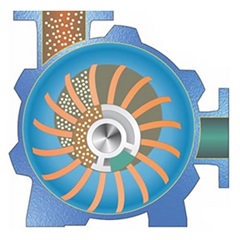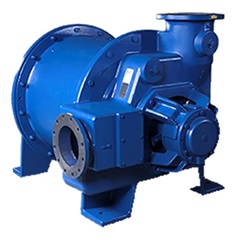Select Your Country/Region
Current Region:
 Global (EN)
Global (EN)
Choose a different country or region to see the content specific to your location
- ARTICLES
- All Articles
- Drum Filters Applications
How can we help you?
Current Region:
 Global (EN)
Global (EN)
Choose a different country or region to see the content specific to your location
How can we help you?
One of the oldest filters used in industrial applications, a rotary drum filter resembles a drum laying on its side. One third to one half of it is submerged in the slurry.
Similar to a Rotary Drum Filter, the Precoat Filter is used to polish the filtrate. The main difference is that the scraper blade is stationary on a conventional drum filter, but slowly moving on the precoat filter. The goal is to avoid formation of a thick layer of cake by continuously shaving it off. In addition, the precoat drum is always subject to vacuum - there is no dead zone.


